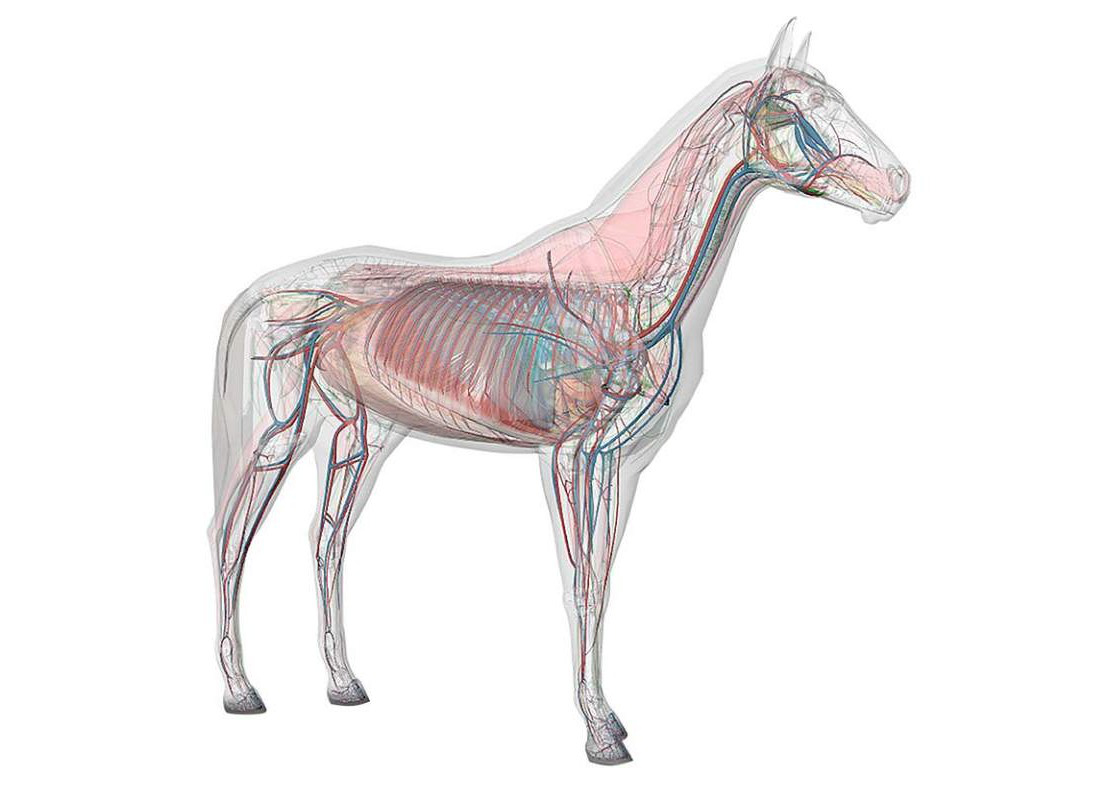In part three of our series on ‘understanding equine respiratory disease’ we look at how worried we should be about our horses’ respiratory health.
 Dr Emmanuelle van Erck Westergren is one of Europe’s leading equine veterinary experts specialising in respiratory disease in horses. In a major interview with Bedmax in 2021, Dr van Erck explained the types of respiratory disease she encounters, the causes, the lessons we can learn from Covid, and the crucial importance of eliminating dust from the stable.
Dr Emmanuelle van Erck Westergren is one of Europe’s leading equine veterinary experts specialising in respiratory disease in horses. In a major interview with Bedmax in 2021, Dr van Erck explained the types of respiratory disease she encounters, the causes, the lessons we can learn from Covid, and the crucial importance of eliminating dust from the stable.
How widespread is respiratory disease among UK horses?
Over the past 10 years as an international consultant vet, Dr van Erck has treated hundreds of horses other vets have not been able to cure. Around 80% of these horses turn out to be suffering from inflammation and/or disease of their respiratory system.
“Yes, respiratory disease is prevalent, and although my cases are almost all high performance horses it’s just as widespread in leisure horses. With a racehorse you’re going to immediately know when he’s performing or not, so it is easier for trainers or vets to spot that something’s going wrong. When you’ve got a leisure horse and you don’t do any very demanding exercise, the horse can develop a respiratory condition over a long period of time without you even noticing. You might feel that he’s a little bit slower, but if you feel that he’s progressively going from a sparkly little horse to a diesel engine, you have to ask yourself if it could be that that he is a developing a respiratory condition.”
If symptoms are not immediately obvious, how does it develop over the long term?
Occupational respiratory diseases like COPD, Asbestosis or Miner’s Black lung are all caused by the inhalation of tiny dust particles, and all can build up for years before any symptoms become apparent. Equine respiratory disease can follow exactly the same course.
“Unless its detected early, as it tends to be with performance horses, the first time an owner will become aware of a cumulative respiratory disease like COPD is when their horse starts coughing. The fact that he’s coughing signals that something is going on in the lower airways, but it’s going to be much more difficult to reverse a problem that’s been evolving for so long. It’s going to take time, energy and it’s going to be costly, because you’re going to have to medicate the horse for a long period of time.
“Usually leisure horses are a little bit older, so they’ve been exposed for years to significant amounts of dust. If you remember the crisis of asbestos, it took a long time before we realised that asbestos was toxic for people and that people died of cancer. This is not a situation as dramatic as asbestos, but there is a parallel in that you don’t realise you’re inhaling something harmful until it’s too late.”
Are there other parallels with human experience that can help us understand how it effects our horses?
Owners suffering from asthma understand better than anyone the distressing effects of dust in a stable, and they also understand from their own experience how it can affect their horses.
“We’ve mentioned Covid before, but it’s has taught us so much about respiratory disease. For those who experienced it, or family and friends experiencing it, it was a very vivid demonstration of just how debilitating a severe respiratory disease can be. But even without catching the coronavirus, I remember when we started wearing masks, we felt it was really annoying not to be able to breathe properly and as soon as you took off your mask all of a sudden you can gasp in a nice big breath of fresh air. Well, it’s exactly the same thing that happens if you have got chronic inflammation in your airways at the level of your lungs; it’s going to be as if you were putting an extra layer on the horses breathing system.
“You know when you tell your kids never to put a plastic bag over their heads? Well, that’s exactly how horses that have airway obstruction feel. They’re just gasping for air and it’s a very anxiogenic feeling. So horses that can’t breathe properly do become stressed. They don’t work in a very relaxed way because they feel that whenever they’re going to work they’re going to be deprived of oxygen.
Are owners aware of respiratory disease and how to spot and prevent it?
Going back to Covid again, we had a lot more enquiries about respiratory disease than before. I think that what I perceive in practise is that some owners who have horses with problems may want to get a quick fix and so they are happy to have a vet come in and give some medication and then the problem is over.
Because I’m in a referral practice, I see many cases where that’s not right for the horses. They may have recurring respiratory issues that need treatment over and over again without a permanent solution. Owners who go through that process are often much more open to looking for the root cause of the problem, including looking at the horse’s environment to see what can be improved, and that will have a significant impact on the horse’s respiratory health.
To find out more about the main causes of respiratory disease please visit our blog post here.
Can the choice of bedding make a difference in beating respiratory disease?
“I think the quality and type of bedding makes a world of difference. Many people still use straw without realising that climate change is raising the levels of harmful bacteria and fungi is soil, and therefore in straw, and warmth and moisture in a stable create the perfect breeding ground for these causes of disease. if you want a consistent quality of bedding that is completely contaminant free straw is certainly not a choice.
“Wood shavings naturally contains antiseptic compounds called terpenes which prevent the wood from rotting because they act against the development of bacteria and fungi. But wood shavings vary in quality too. Small wood shavings from the wood industry contain and create a lot of dust. Large, purpose-made shavings offer the best combination of benefits for a horse’s health in the stable.
“When I am dealing with a horse with any kind of respiratory disease, this is one of the first steps before going into the details of how we’re going to treat them. If I don’t create a healthy environment for a horse’s airways, then I am always going to struggle with their respiratory health and I’m never going to get an effective response to my treatment. Treating the source of the problem is usually the most important thing in my approach.”




